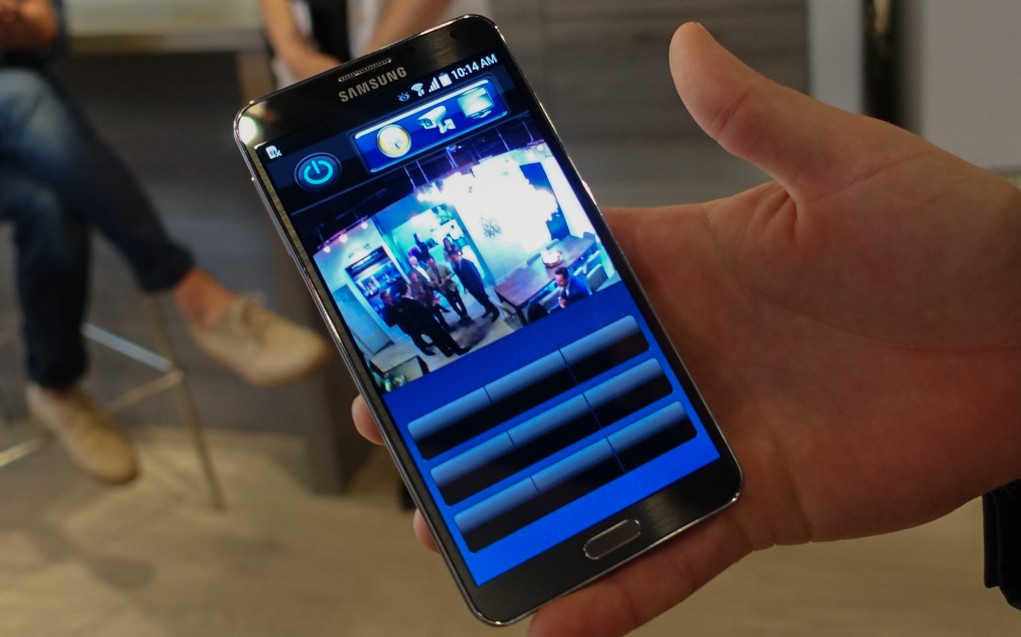
Welcome to Tête-à-Tête, a series where two of our writers converse on interesting topics in the mobile landscape — through chat. Think of it as a podcast for readers.
This week, in light of Samsung’s recently-announced collaboration with premium condo developer Canderel Residential, we ask, ‘Is it dumb to buy a Smart Home?’
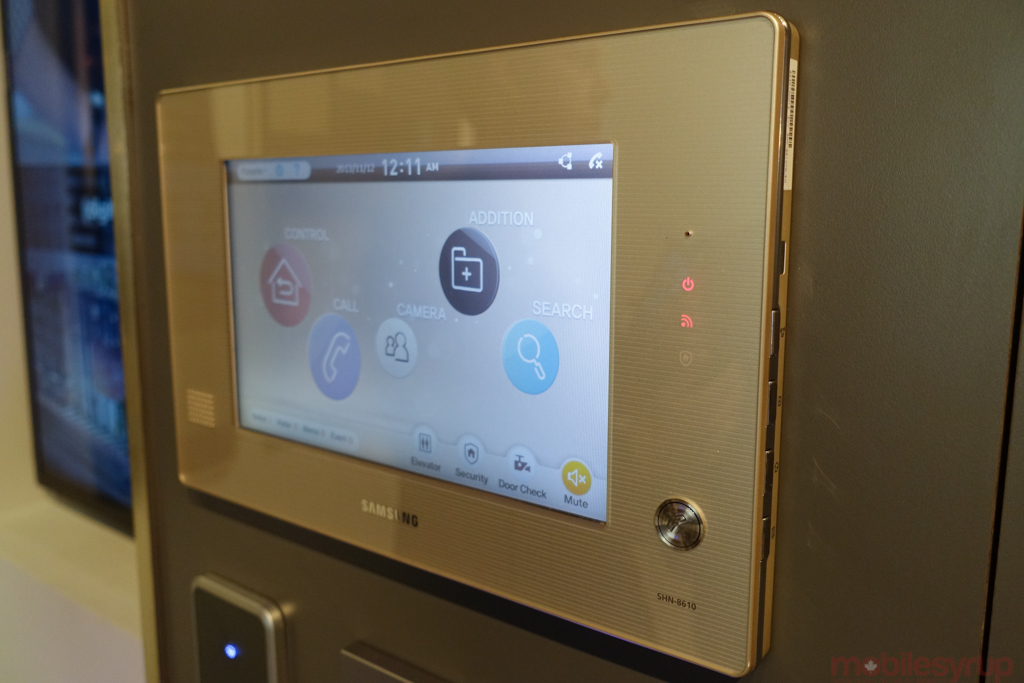
Daniel Bader: Doug, I have seen the home of the future, and I am underwhelmed. Call me cynical, but the ability to open a Blu-ray player with my phone is not how I imagined the condo of my dreams.
But first, for the people, a summary: Samsung Canada has partnered with Canderel Residential, one of Toronto’s most prolific condo developers, and True Marque Ltd., the Canadian distributor of Samsung SDS (an independent ICT company that shares the Samsung branding), to create a series of penthouse suites at YC Condos in Toronto with Smart Home features. These include a Samsung-branded wireless door lock; movement-based push notifications and video surveillance; controls for television, audio and Blu-ray; and lighting/blind toggles.
Samsung provides two ways of accomplishing such tasks: a smartphone and tablet app that connects wirelessly to the various components, and a wall-mounted tablet that offers a proprietary GUI to accomplish the same tasks.
We were both at the preview, where representatives from Samsung Canada, Canderel and True Marque espoused the virtues of buying a condo with these various home automation tools, but I’m skeptical of their long-time viability.
I see the “appification” of the home as inevitable: the Internet of Things will slowly commoditize, and with it the modular austerity of off-the-shelf home automation products will become easier, cheaper and less intimidating to install. Having the hardware not only pre-installed but unified upon moving in will certainly be an attractive prospect to any home buyer with the financial means to do so — these penthouses start at $950,000 CDN — but being locked into a single platform like Samsung’s may result in product obsolescence sooner than a cloud-based solution like Nest’s growing hardware portfolio.
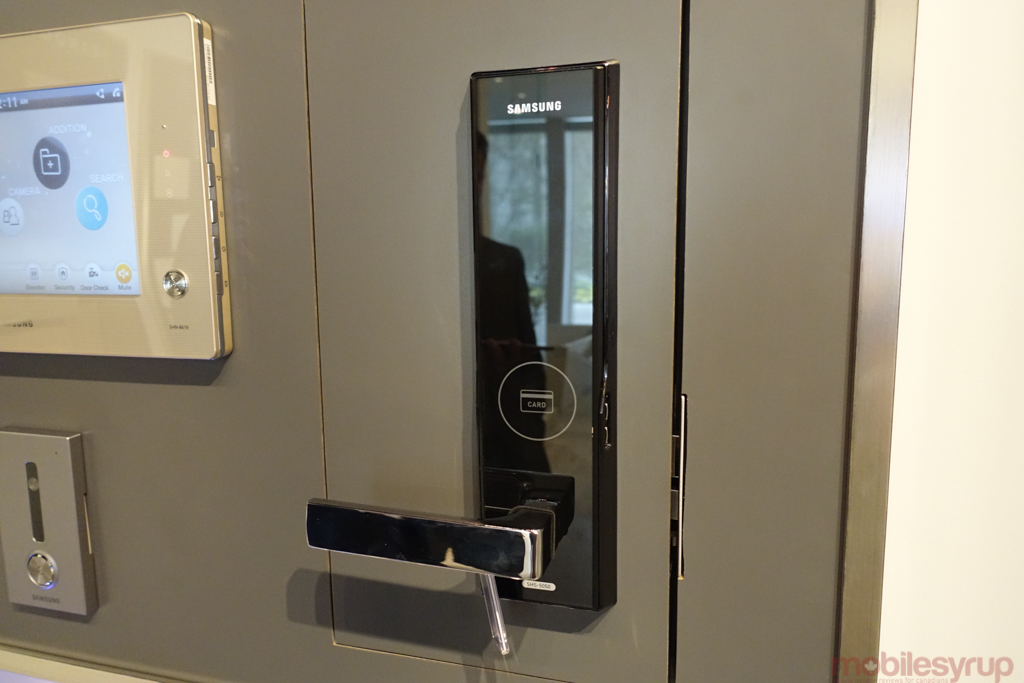
Douglas Soltys: There’s a lot to discuss here, so let’s begin with a depressing truth and move forward. First, as exemplary tech writers on modest tech writer salaries, we are not the target demographic for this initiative (or, for that matter, ever owning property in the city of Toronto). What is the target demographic? Young professionals between 25-35 working on King or Bay Streets, with a general tech savviness and desire to digitally-enable their recently purchased condos.
But while smart homes are common in Asia (where Samsung is looking to leverage its expertise), they are a new development in North America. As such, expectations have not been set, so Samsung’s lack of more advanced features (e.g., family member profiles with different access credentials for each, proximity-based door locks using NFC, etc.) won’t necessary resonate with the people that can afford this stuff as it would with us.
In the same way, I don’t think Samsung is in trouble against compelling, yet as of today relatively isolated services, like Nest. We may want to build our home of the future à la carte, picking the best of the best until we have a digital A-team (Roomba included). But this isn’t the way most families make major technology purchases, for the same reason why most people choose “home entertainment systems” over superior component pieces: it’s a research-intensive, exhausting process. It is much easier, and to some, much more appealing, to go to your condo management and say, “What are your pre-packaged ‘smart home’ options?”
For this reason, I think Samsung is the right partner for condo developers like Canderel rather than big box stores. It allows them to set the expectations as well as control the point-of-sale experience.
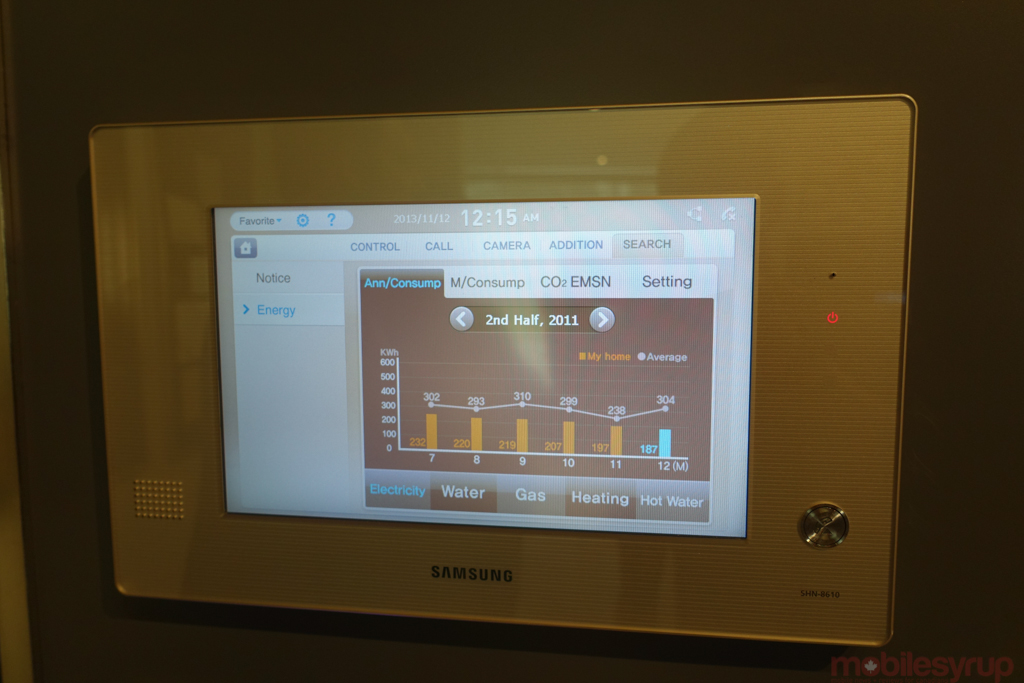
Daniel Bader: You’re right, the smart home needs to have the lowest possible barrier to entry, and users need to feel comfortable and safe using technology to replace, or at least augment, what we’ve been relying on for years in physical form. We were shown that the wireless lock also has a battery entry in case its own cell runs out of juice, and it will always be possible to physically turn on the television or run down the lights if your phone is dead or the WiFi goes down. A smart home’s intelligence is only as good as its promise of safety and reliability.
Google’s increasingly cloud-centric approach to home automation will likely mean that services can be updated more easily through software updates than something like the Canderel Digital Home, a True Marque Project Powered by Samsung (yes, that’s its full name). Samsung SDS will have to ensure that any piece of software is free of bugs, which means potentially dialling down the feature sets; as you inferred, this is a first-generation product, and lacks many of the advanced features that Dropcam, Piper, Nest and others are offering.
The Smart Home as a concept is in the same period as smart cars or smart televisions were five years ago, lacking a unified platform like iOS or Android to build from, and therefore limited in its scope and functionality. Samsung’s Digital Home may be useful, but it’s an expensive showcase of what, when these penthouses are ready in 2017, may be old when it is new.
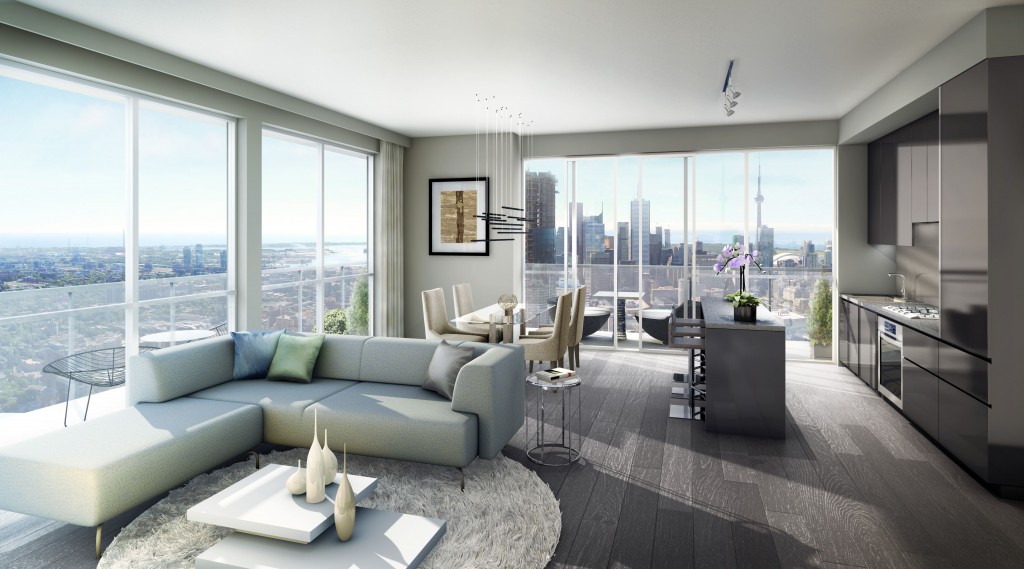
Douglas Soltys: True, but the benefit of a modular, wireless system, is that they don’t have to install during construction, meaning that every new tenant has the opportunity to get the new hotness (or at least, the latest version of Samsung’s Digital Home) at the time of purchase. A bigger concern for me would be moving into a SDH-enabled condo with non-Samsung tech, like a flatscreen or sound system. Will it work or do I have to get rid of it?
Regardless, if the North American Smart Home is in its earliest days, let’s look forward. What does the Smart Home of the future look like, and who do we want to build it?
Daniel Bader: I’ve never owned a home, nor had to grapple with the choices these Bay and King St executives will have to make (although I have learned granite countertops are the best), but the smart home I want most is one I don’t have to fight. It needs to be platform-agnostic — I don’t want to force my entire family to be on Samsung, or Apple, devices, for instance — and needs to be able to easily receive important updates the way smartphones do today. Going back to the car analogy, I don’t want to have to return to the dealership and wait around for five hours every time my dash begins acting erratically.
The future of the smart home — my smart home — is an app, or three. We wrote about this earlier in the year, and it’s as true today as it ever was. Companies like Samsung hooking up with Canderel represent an appreciable lower barrier to entry, but the elegance, at least in my opinion, is lost in translation.
MobileSyrup may earn a commission from purchases made via our links, which helps fund the journalism we provide free on our website. These links do not influence our editorial content. Support us here.


